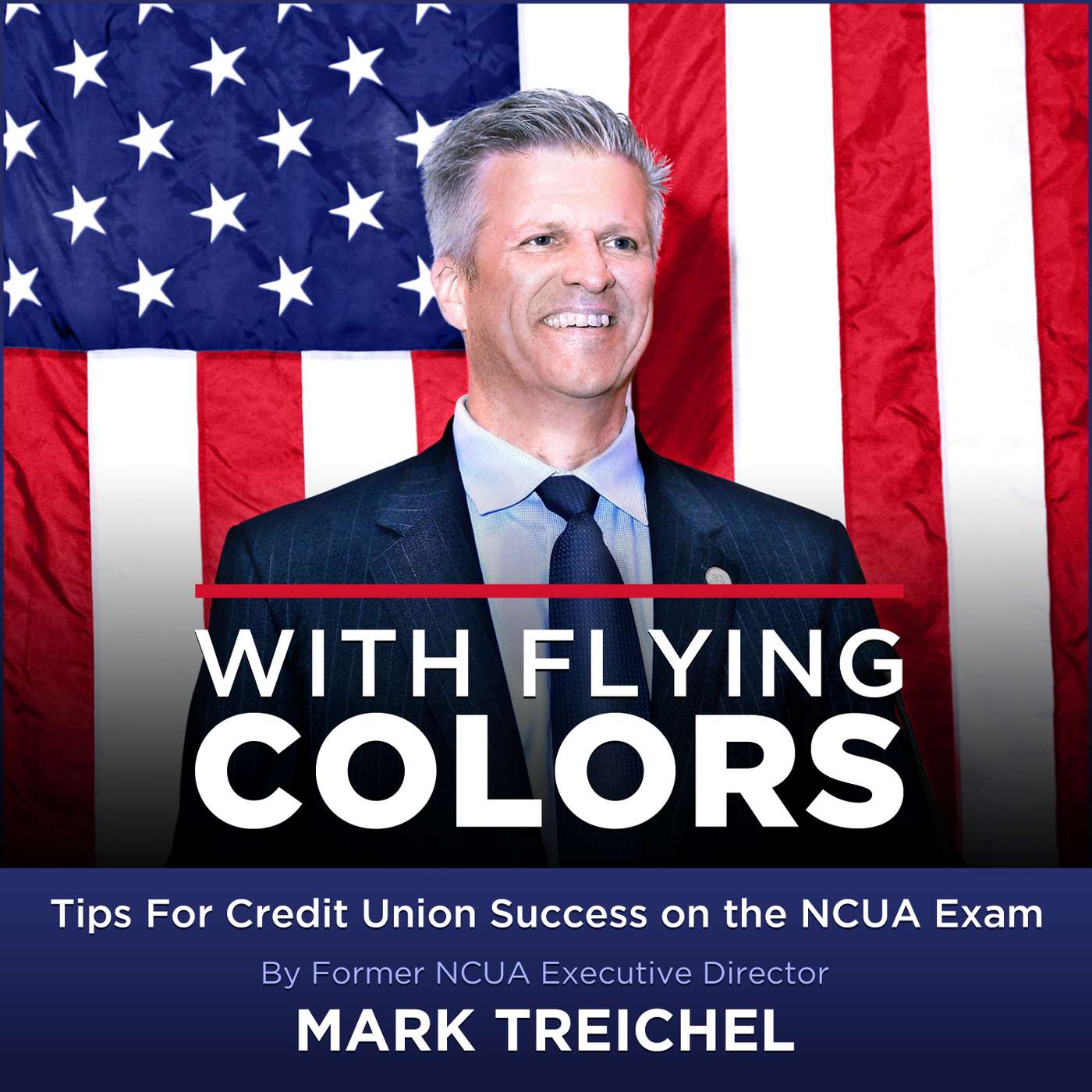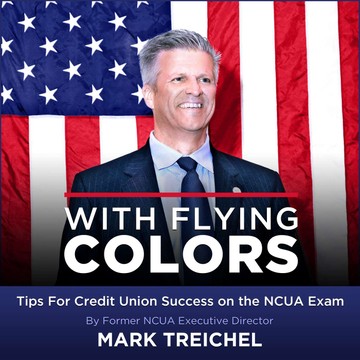

Credit Union Exam Solutions Presents With Flying Colors
Mark Treichel's Credit Union Exam Solutions
Tips for Credit Unions Success on the NCUA Examination. Brought to you by Mark Treichel's Credit Union Exam Solutions.
Episodes
Mentioned books

Jul 29, 2025 • 29min
Home Mortgage Disclosure Act (HMDA) Basics
www.marktreichel.comhttps://www.linkedin.com/in/mark-treichel/Home Mortgage Disclosure Act (HMDA) Basics

Jul 29, 2025 • 16min
NCUA in Limbo: What the Board Shakeup Means for Credit Unions
Chaos envelops the NCUA board as recent shakeups raise questions about its future. Following President Trump's controversial firings and a court's ruling, the podcast dives into the legal drama swirling around reinstatements. Tensions were palpable during the latest board meeting, with discussions glancing off key issues like AI and staffing shortages. Unresolved challenges loom, including potential new appointments that could reshape leadership. The fate of board members remains uncertain, leaving credit unions in a precarious position.

Jul 22, 2025 • 38min
MBL Loans: Financial Analysis Credit Proposals & Global Cash Flow
Vin Vieton, a former senior credit specialist at the NCUA, shares his extensive insights into member business lending. He discusses the significance of global cash flow in assessing borrowers and guarantors, emphasizing thorough due diligence. The importance of proper financial analysis in credit proposals is highlighted, focusing on trends in business performance and cash flow assessments. Vieton also explores the roles regulatory guidance plays in lending practices and the necessity of maintaining clear documentation for compliance and informed decision-making.

11 snips
Jul 17, 2025 • 36min
ALCO In Practice: Essential Reports Analysis & Risk Management
Join Todd Miller, a seasoned credit union expert with a rich background in capital market supervision, as he delves into the essentials of ALCO reporting. Discover the importance of tailored reports for effective business planning and performance measurement. Miller emphasizes the vital role of cohesive risk management strategies and transparent communication during NCUA examinations. He shares insights on navigating decision-making amidst regulatory pressures and highlights the significance of customized training to foster a positive corporate culture.

8 snips
Jul 15, 2025 • 57min
The OCC's Risk Report and What It Reveals for Credit Union Exams
Explore the hidden risks credit unions face as they navigate the post-COVID landscape. Experts analyze rising commercial credit risks and the impact of student loan repayments on retail credit performance. They delve into concerns over office vacancies and shifting generational borrowing behaviors. Additionally, the discussion highlights emerging threats like fraud and ATM security, emphasizing the need for advanced risk management strategies. Tune in for valuable insights to stay ahead in this evolving financial environment.

Jul 10, 2025 • 13min
ALCO GOVERNANCE ESSENTIALS: BUILDING AN EFFECTIVE COMMITTEE STRUCTURE
Todd Miller, a seasoned expert with 34 years at the NCUA, shares his insights on optimizing Asset and Liability Management Committees (ALCO) in credit unions. He discusses best practices for creating effective ALCO charters and fostering governance culture. The conversation highlights the crucial roles of committee members and the evolving function of chief risk officers. Miller emphasizes the importance of proper structure, responsibilities, and reporting practices in mitigating financial risks and aligning governance with organizational goals.

11 snips
Jul 8, 2025 • 31min
Sticky Deposits & Storm Clouds: What’s Ahead for Credit Unions?
Thomas Griswold, Managing Director at ALM First Financial Advisors, shares his expertise on navigating the evolving economic landscape for credit unions. He discusses the vital role of capital management and pricing risks effectively to maintain stability. The conversation highlights trends in loan growth, funding challenges, and the significance of liquidity post-rate hikes. Griswold also delves into the importance of talent retention strategies and the impact of mergers on the industry's future. Listeners gain practical insights into optimizing performance amid uncertainty.

Jul 3, 2025 • 31min
The NCUA Central Liquidity Facility and What You Need to Know
Steve Farrar, former VP of the Central Liquidity Facility (CLF) at NCUA, shares his vast knowledge of this essential government entity. He explains how the CLF supports credit unions during financial crises, drawing insights from historical events like the Great Recession. The discussion also covers enhancements from the CARES Act, membership benefits for natural person credit unions, and strategies for effective liquidity management. Farrar emphasizes the importance of continuous liquidity support for credit unions facing economic challenges.

10 snips
Jun 26, 2025 • 34min
What Should Be In Your Board Monthly Package According to NCUA
Todd Miller, a former consultant with the NCUA, brings his 34 years of expertise to discuss the essentials of board monthly packages. He highlights the necessary components for compliance with NCUA standards while addressing the unique needs of credit unions. Miller shares insights on risk management during challenging times and the balance between quantitative and qualitative data. He emphasizes the importance of clarity in board reporting, effective governance strategies, and adapting materials to ensure relevance in decision-making.

5 snips
Jun 24, 2025 • 29min
Elizabeth Warren Demands Answers from NCUA Board Chairman Kyle Hauptman on Actions Since Trump Firings
The podcast dives into the fallout from the Trump firings of NCUA board members, questioning the agency's ability to operate legally with just one member. Elizabeth Warren and Maxine Waters demand clarity on the agency's authority and the definition of 'essential functions.' The conversation highlights the potential regulatory crisis and the challenges of governance during emergencies. Listeners are encouraged to engage with the contentious political dynamics and oversight issues facing credit unions today.


